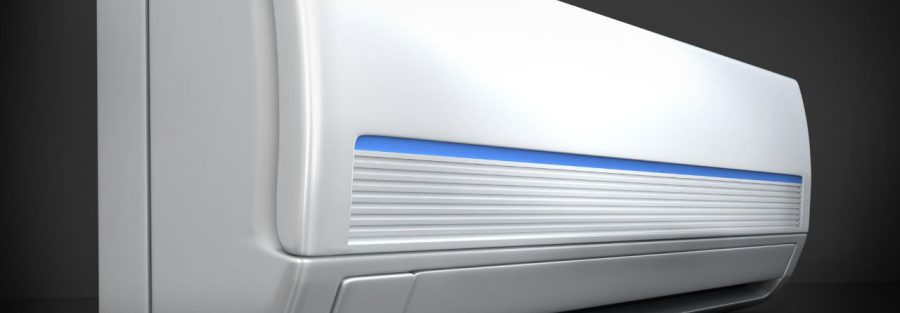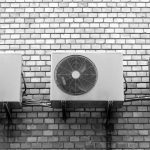An air conditioner spitting water can be a puzzling issue. If you notice this happening, it’s important to understand what’s causing the ongoing problem. It disrupts comfort and raises concerns about potential damage. Understanding why this happens is crucial for homeowners.
Several factors can cause an AC unit to spit water. These include clogged filters, blocked drain lines, and low refrigerant levels. Each issue requires a specific approach to resolve.
Regular maintenance can prevent many of these problems. Simple checks and cleanings can keep your AC running smoothly. However, some situations may need professional attention.
This guide will explore the common reasons and solutions. Learn how to fix your air conditioner and prevent future issues.
Common Signs Your AC Unit Is Spitting Water
Identifying water spitting from your AC unit is crucial. You might notice water droplets around the unit or hear unusual noises. Water may also leak into the room, affecting comfort and cleanliness.
Look for these common signs:
- Water collecting near the AC unit
- Water leak or moisture appearing inside the room
- Reduced cooling efficiency
- Strange sounds during operation
If any of these signs appear, investigate promptly. Early detection can prevent more serious issues. Taking quick action helps maintain system efficiency and avoid costly repairs.
Why Is My AC Spitting Water? Main Causes Explained
Your AC unit can spit water due to several common issues. Understanding these causes helps you address them efficiently.
When warm air from your room passes over the cold evaporator coil inside the AC system, the coil cools the air and removes heat and humidity. This process causes condensation, similar to how water droplets form on a cold glass of water on a hot day. As water forms on the evaporator coils, it drips into a drain pan and should exit through a drain line. If this process is disrupted, it can lead to water leaks or dripping inside air conditioners.
A primary reason is a clogged or dirty air filter. When filters are blocked, airflow is restricted, leading to ice formation and freezing of the evaporator coil, and eventual water leakage.
Another frequent cause is a blocked or disconnected drain line. This situation causes water to back up, finding its way out of the unit.
Low refrigerant levels can also lead to problems. A refrigerant leak can cause a drop in pressure within the AC system, which may result in the evaporator coils becoming too cold and freezing. As they melt, water can drip erratically.
Improper setup might also be a culprit. Improper installation or leveling can cause water to gather and eventually spill over. If the unit is not tilted correctly, condensation may not drip outside as intended, leading to a water leak inside the room.
Finally, high humidity levels contribute to excess condensation. This moisture can escape from the unit in the form of water spitting.
Identify these issues to fix them promptly. This approach helps protect your AC from damage, as these problems can cause water leaks, dripping, or freezing in air conditioners, and may require professional repair of the heating or cooling components.
Clogged or Dirty Air Filter
A clogged air filter restricts airflow significantly. Dust, dirt, and other debris can accumulate in the filter, causing blockages. When airflow is blocked, the coils might freeze, leading to ice formation.
As the ice melts, it causes water to drip irregularly. Regularly replacing or cleaning filters removes dust, dirt, and debris, ensuring proper airflow and preventing this issue.
Blocked or Disconnected Drain Line
A blocked drain line results in water accumulation. The drain line carries water away from the unit, so if it is blocked, water cannot be removed efficiently. This water will eventually find its way out, causing spitting.
Additionally, if the drain line is disconnected, water can’t flow out properly. Ensuring the line is clear and connected prevents water backup.
In homes where the AC unit is installed in the basement, a blocked drain line can quickly lead to water spitting or leaks.
Low Refrigerant Levels and Frozen Coils
When refrigerant levels are low, coil temperatures drop. This can cause condensation on the coils to freeze.
As this ice melts, the resulting water leads to spitting. Professional inspection and correction of refrigerant levels can help.
Improper Installation or Leveling
An incorrectly installed or leveled AC unit leads to water issues. This is especially important for window units, as a window AC must be installed and tilted slightly outward to ensure proper drainage. When installing a window AC, make sure the window unit is tilted slightly so that water drains outside the window, not into the room. Water may not drain properly, causing buildup and leakage.
Adjusting the unit’s position ensures proper drainage. This simple fix can prevent many water spitting problems.
High Humidity and Excess Condensation
High humidity levels increase moisture in the air. This excess moisture condenses in the AC unit, leading to spitting.
Using a dehumidifier can reduce ambient humidity levels. Consequently, this can minimize condensation and water-related issues.
Broken Condensate Pump: How It Causes Water Spitting and What to Do
A broken condensate pump is a frequent culprit behind air conditioner leaks, especially in homes where the air conditioning system is installed in basements or areas below ground level. In these setups, the condensate pump is responsible for moving water collected in the drain pan up and out through the drain line, ensuring that excess water doesn’t accumulate inside your home. When the pump fails, water can no longer be pumped out efficiently, leading to a buildup in the drain pan. This often results in the air conditioner spitting water or leaking water onto your floors.
Several factors can cause a broken condensate pump, including normal wear and tear, electrical issues, or a clogged condensate drain that prevents water from moving through the system. If the pump stops working, water will quickly overflow from the drain pan, causing water leaking and potentially damaging your air conditioning system or even your home’s structure. In some cases, a damaged drain pan or a clogged drain line can also contribute to the problem, making it important to inspect the entire drainage system.
If you notice your air conditioner spitting water or see signs of leaking water near your unit, it’s important to act quickly. Turn off the air conditioner to prevent further damage and contact a professional HVAC technician to schedule repairs. A qualified technician can diagnose whether the issue is a broken condensate pump or another problem, such as a dirty air filter, low refrigerant levels, or a clogged drain line. They’ll also check for any leaks or damage in the drain pan and ensure the condensate line is clear.
Prompt repairs are essential to prevent further damage, including mold growth, water stains, and reduced efficiency in your air conditioning system. Regular maintenance—such as checking the condensate pump, cleaning the drain line, and inspecting the drain pan—can help prevent air conditioner leaks and keep your system running smoothly. By staying proactive with maintenance and addressing issues like a broken condensate pump right away, you can avoid costly repairs and enjoy reliable cooling all season long.
How to Fix Air Conditioner Spitting Water: Step-by-Step Solutions
Fixing a spitting AC involves addressing the root causes. Start by checking each component systematically.
First, inspect the air filter. If it’s clogged, replace it with a new one or clean it thoroughly. Regular inspection prevents airflow issues.
Next, assess the drain line for blockages. Use a vinegar solution to clear the line. Ensure it’s securely connected to the unit.
Consider refrigerant levels if the problem persists. Low refrigerant often requires professional attention to avoid handling hazards. If any component is found to be faulty, it should be repaired promptly to prevent further issues.
Moreover, ensure the AC unit is level. An uneven unit can cause improper water drainage. Use a spirit level to make adjustments as needed.
In environments with high humidity, consider deploying a dehumidifier. It reduces excess moisture, thus preventing excessive condensation.
Lastly, create a routine checklist to help maintain your AC’s health. Consistent maintenance, including scheduling regular AC repairs and professional repair services, prevents minor issues from escalating and ensures any faulty parts are repaired quickly. Professional AC repairs can help prevent water spitting and keep your system running efficiently.
DIY Maintenance Tips to Prevent Water Spitting
Proactive maintenance can stop water spitting. Implement these easy steps to keep your AC in top shape.
- Replace air filters every 1-3 months.
- Clear the drain line with vinegar to avoid clogs.
- Check unit leveling regularly.
Regular filter replacement promotes good airflow. A simple schedule can improve AC efficiency and comfort.
For drain lines, clear them seasonally to prevent backups. This upkeep ensures water flows away smoothly.
Finally, monitor the unit’s level. Doing so prevents water pooling, a common cause of water spitting. This simple step saves future headaches.
When to Call a Professional for AC Water Issues
Sometimes, DIY methods aren’t enough. If problems persist, contacting an expert is prudent.
Signs you need professional help include:
- Persistent water spitting despite maintenance.
- Low refrigerant levels or dealing with refrigerant.
- Continuous noise or unusual AC behavior.
Professional inspections identify complex issues before costly repairs emerge. Trust in expert services for peace of mind.
Preventative Maintenance for a Healthy AC Unit
Regular maintenance extends your AC unit’s life and efficiency. Address small issues before they escalate.
Set a schedule for routine check-ups. This reduces unexpected breakdowns and maintains cooling performance.
Include these tasks in your maintenance routine:
- Clean or replace filters every 1-3 months.
- Ensure drain lines are clear and securely connected.
- Inspect for proper leveling and installation.
- Monitor refrigerant levels and ice on coils.
Proactive measures save costs and headaches in the long term.
Conclusion: Keep Your AC Running Smoothly
Addressing a spitting AC unit quickly is essential. Ignoring the problem might lead to more significant damage. Regular checks and basic maintenance can keep your unit efficient and effective.
Keep an eye on the common causes of water issues. Deal with them as they arise. For persistent problems, don’t hesitate to consult a professional. With diligence, you can ensure cool comfort in your home all summer long.



